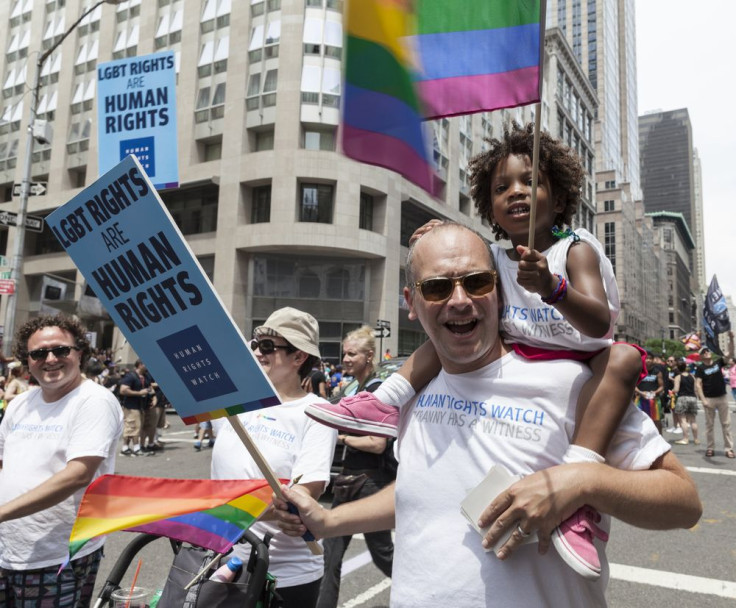LGBT Parents' Custody Battles Are Rife With Heterosexual Bias In The Courts

There is currently no social scientific research to support the notion that heterosexual couples make better parents than members of the LGBT community. However, it seems the latter may have a hard time proving that in court. A review out of Drexel University has revealed that court decisions over a custody battle tend to favor heterosexual parents compared to their gay and lesbian counterparts due to an unfair bias perpetuated by discriminatory legislation and court systems.
"There's been a sea-change within the past five to 10 years — several states are currently going through the process of legalizing same-sex marriage — and a by-product of that change is that there are more people in same-sex relationships that have been legitimized by society," said Dr. Kirk Heilbrun, professor of psychology at Drexel University’s College of Arts and Sciences, in a statement. "This means that there are also more children involved in custody disputes where one parent is in a same-sex relationship. This has become an increasingly relevant issue and one that needs to be addressed."
Heilbrun and his colleague from the university, Emily Haney-Caron, J.D./Ph.D. candidate, conducted a thorough review of existing research on gay and lesbian parenting as well as the current laws surrounding child custody for gay and lesbian parents. This subject was first presented to Heilbrun in a paper Haney-Caron wrote for the professor’s forensic assessment course. The research team was surprised to learn how many states still consider sexual orientation to be a deciding factor in custody lawsuits.
Parents who come out as gay or lesbian following the end of a heterosexual relationship are often denied custody of their child and even face some visitation restrictions. When same-sex couples with children decide to end their relationship, it can become difficult to establish parental rights for both parents, seeing as one of the partners is not recognized as a legal parent in the eyes of the state. Heilbrun and Haney-Caron hope their findings will help guide judges in making informed decisions regarding custody and parental rights by taking the child’s best interest into account.
"As our views as a society change, we want our courts to reflect that," Haney-Caron explained. "Our legal system should reflect the values and the realities that we hold. By allowing the research to influence legal decision-making in this area, our society can help ensure that the best interest of the children whose custody is at issue will be served. This is a prime example of the kind of work we do in the JD/PhD program. It brings together two disciplines — law and psychology — and creates scholarship in the space between them."
The research team at Drexel also offered recommendations for any interested party who may be involved in a custody battle with an LGBT parent. Psychologists are asked to consider how laws and research pertaining to the matter could influence the court’s decision and what is needed to safeguard against personal biases. Judges should take into account social scientific research involving the effectiveness of gay and lesbian parenting when making a decision that could affect an entire family. Lastly, a change in legislation should be considered to restrict judges from making a custody decision based on sexual orientation. Legislation should also be amended so that legal bonds between LGBT parents and their children are easier to establish.
Source: Haney-Caron E, Heilbrun K. Lesbian and Gay Parents and Determination of Child Custody: The Changing Legal Landscape and Implications for Policy and Practice. Psychology of Sexual Orientation and Gender Diversity. 2014.



























